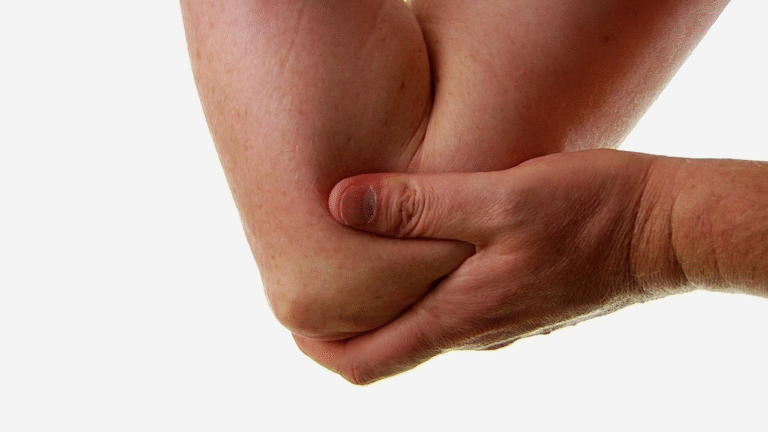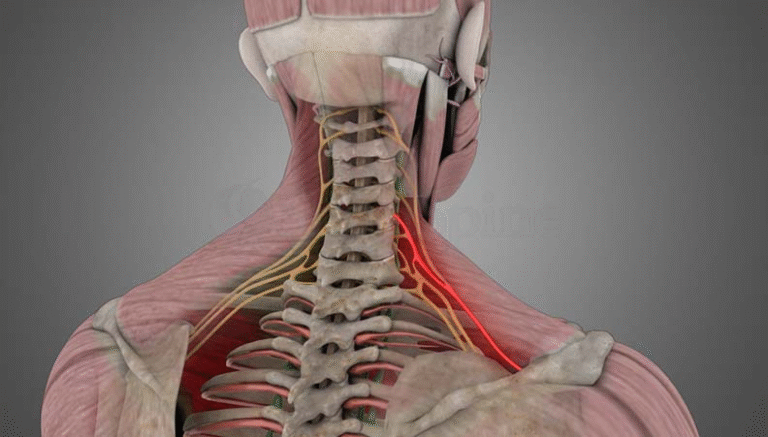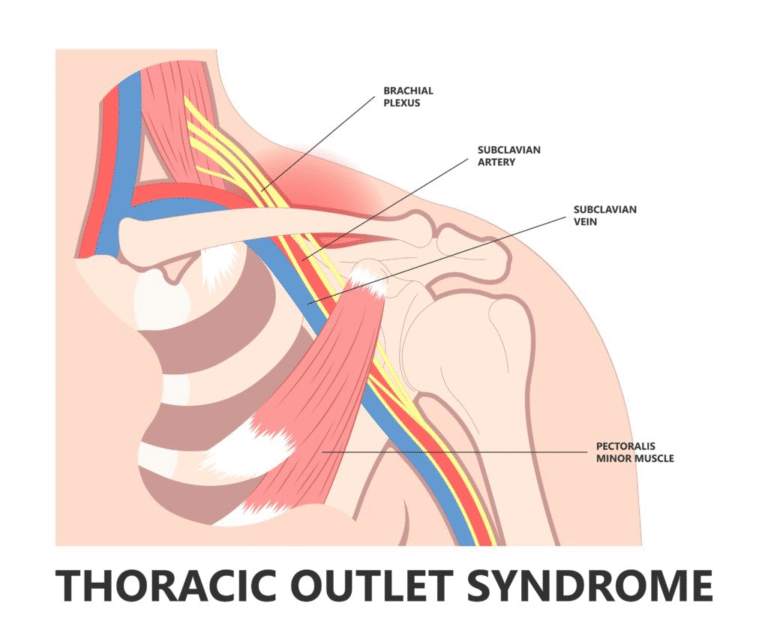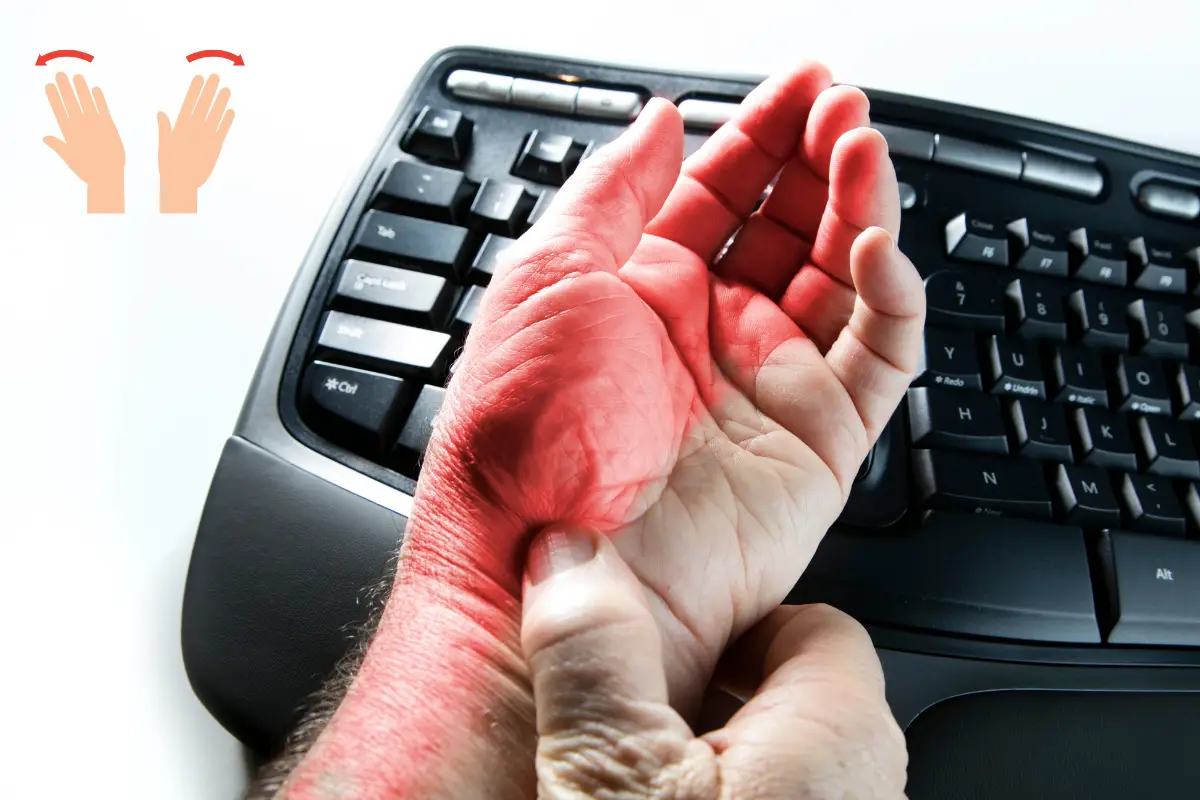- +91 75677 63301
- 24*7 Emergency Care
Pain in the nerves of the hand: Is It Carpal Tunnel Syndrome or something else?
- Home
- /
- Carpal Tunnel Syndrome
- /
- Pain in the nerves...

Whether you’re typing at a desk, lifting at the gym, or simply using your phone, your hands are constantly at work. But when nerve pain strikes—tingling, numbness, or sharp aches—it can quickly disrupt your daily routine. While many assume it’s Carpal Tunnel Syndrome (CTS), there are several other conditions that mimic similar symptoms.
Understanding the root cause of nerve pain in the hand is essential for effective treatment and long-term relief. In this blog, we’ll explore the common causes of hand nerve pain, how to differentiate them, and what treatment options are available.
Table of Contents
ToggleWhat is Carpal Tunnel Syndrome (CTS)?
Carpal Tunnel Syndrome (CTS) is a condition caused by compression of the median nerve as it passes through the narrow carpal tunnel in the wrist. This pressure can lead to symptoms such as numbness, tingling, pain, and weakness in the hand and fingers, often worsened by repetitive hand movements or underlying health conditions.
- Tingling or numbness in the thumb, index, middle, and part of the ring finger.
- Hand weakness or dropping objects.
- Pain worse at night or while using the hand.
What to Do:
Carpal Tunnel Syndrome can be managed with non-surgical or surgical approaches depending on the severity of symptoms.
- Non-Surgical Treatment: Recommended in mild to moderate cases where symptoms like tingling, numbness, or pain are occasional and not causing major functional loss. This includes wearing a wrist splint (especially at night), avoiding repetitive wrist motions, taking medications, and considering physiotherapy.
- Surgical Treatment: Considered in severe or persistent cases where non-surgical measures fail, or when there is significant weakness, constant numbness, or muscle wasting in the hand. Surgery relieves pressure on the median nerve to prevent permanent damage.

Cause: Compression of the ulnar nerve at the elbow (funny bone area)
Symptoms:
- Numbness/tingling in the ring and little fingers.
- Elbow pain or tenderness.
- Weak grip strength.
What to Do:
- Avoid prolonged elbow bending.
- Use a night splint to keep the arm straight.
- Consult a specialist if symptoms worsen.

Cause: Nerve compression in the neck (cervical spine)
Symptoms:
- Radiating pain from the neck to the shoulder, arm, and hand.
- Numbness or tingling in specific fingers depending on the nerve root involved.
- Neck stiffness or limited range of motion.
What to Do:
- Rest and gentle neck stretches.
- Physical therapy.
- Imaging (MRI/CT scan) to identify root cause.
- May require surgical intervention if caused by a disc or bone spur.
3. Thoracic Outlet Syndrome

Cause: Compression of nerves or blood vessels between the collarbone and first rib
Symptoms:
- Tingling or numbness in the entire hand.
- Hand weakness or discoloration.
- Symptoms worsen with overhead activity.
What to do:
- Postural correction exercises.
- Physical therapy.
- Evaluation by a vascular or nerve specialist.
4. Peripheral neuropathy

Cause: Damage to the peripheral nerves, often due to diabetes, alcoholism, or autoimmune diseases
Symptoms:
- Burning, tingling, or electric-shock-like pain in the hands and feet.
- Symmetrical symptoms. (both hands/feet)
- Loss of coordination or balance.
What to Do:
- Manage underlying conditions. (e.g., blood sugar control)
- Medications for nerve pain. (e.g., pregabalin, gabapentin)
- Neurological evaluation.
When to see a specialist?
If you’re experiencing:
- Persistent numbness or tingling.
- Night-time hand pain.
- Weak grip or hand clumsiness.
- Radiating pain from neck to fingers.
…it’s time to see a hand nerve specialist.
At Krisha Hand Hospital, we offer:
- Accurate diagnosis using nerve conduction studies and imaging.
- Minimally invasive treatments, including endoscopic surgery.
- Customized rehabilitation plans guided by our physiotherapy team.
How to prevent nerve pain in the hands?
- Maintain Ergonomic Posture
Use proper wrist and hand positioning while working or typing.
- Take Regular Breaks
Avoid prolonged, repetitive hand movements—stretch and rest often.
- Strengthen and Stretch
Gentle wrist, forearm, and neck stretches can help reduce compression.
- Control Underlying Conditions
Keep diabetes, thyroid issues, or autoimmune diseases under control. - Use Braces or Supports
Wrist or elbow supports during high-stress activities can help prevent injury.
Conclusion
Not all hand nerve pain is carpal tunnel syndrome. From elbow nerve entrapments to neck-related issues, several conditions can present with similar symptoms. That’s why accurate diagnosis is the first step to effective recovery.
At Krisha Hand Hospital, our team of hand surgeons and neurologic experts is dedicated to identifying the exact cause of your nerve pain and creating a personalized treatment plan that gets you back to doing what you love—pain-free.
Don’t ignore nerve symptoms in your hand. Book your consultation today and let our experts guide you toward safe, lasting relief.
Author bio
Dr. Karn Maheshwari is the founder of Krisha Hand Hospital, Ahmedabad, established in 2016. He is the only fnb-qualified hand surgeon across Gujarat, Rajasthan, and Madhya Pradesh.
With MS and DNB in orthopedics, Dr. Maheshwari specializes in treating a wide range of hand and wrist conditions, including carpal tunnel syndrome, sports hand injuries, orthopedic hand surgery, ganglion cysts, mangled hand injuries, congenital hand differences, brachial plexus palsy, cerebral palsy & spastic hand, hand tendinopathy, hand microsurgery, hand swelling, hand transplants, hand reimplantation, rheumatoid hand deformities, and peripheral nerve injuries & compressive neuropathies.
Dr. Maheshwari’s unmatched expertise and patient-centric approach ensure world-class treatment, advanced surgical solutions, and optimal recovery for patients with complex hand and wrist conditions.
FAQs
Yes, nerve pain can be intermittent, especially in early stages. It may flare up during specific activities or positions and subside afterward.
While blood tests can’t directly diagnose nerve compression, they can help identify underlying causes like diabetes, thyroid issues, or vitamin B12 deficiency.
Yes, chronic stress can lead to muscle tension, which might mimic nerve symptoms like tingling or numbness, though it’s usually temporary.
Light exercises may be okay, but activities that worsen symptoms should be avoided until a proper diagnosis is made. A physiotherapist can guide safe movements.
Recovery time varies by condition and severity, but with rest, therapy, and lifestyle changes, mild to moderate cases can improve within 4 to 8 weeks.
Yes, sleeping with bent wrists or arms under the head can compress nerves and lead to morning hand numbness or tingling.
Yes, deficiencies in vitamin B1, B6, B12, and vitamin D can contribute to nerve dysfunction and hand symptoms.






